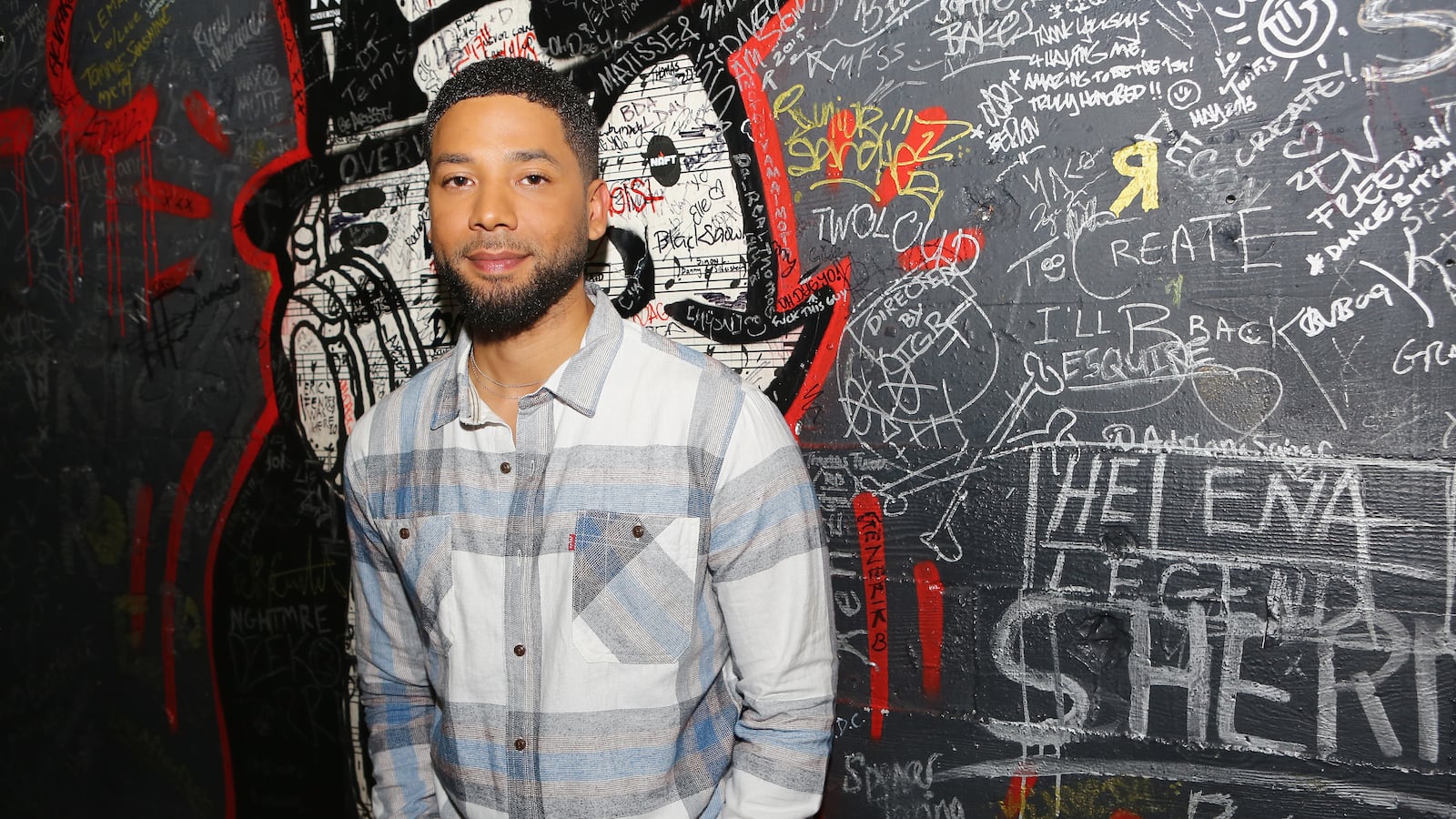There’s an inherent power in celebrating yourself while the world around you works to diminish who you are. In essence, that’s what it has always meant to be black in America: shining through the shit even as it swirls, daring to be boldly yourself against individual and structural contempt. Black History Month is always an interesting study in that reality—a chance to most proudly display all that we are, and a reminder that we remain who we are in spite of it all. With the current presidential administration and cultural climate, it’s been especially significant to see black folks loving on themselves. And lately, it feels like there’s a lot pushing back against that joy.
This Black History Month began with a flurry of blackface scandals: one involving Virginia Governor Ralph Northam, who was reported to be photographed in his 1984 Eastern Virginia Medical School yearbook in blackface—and Northam responded by denying it was him in the photo while admitting that on a separate occasion, he’d put on black shoe polish to look like Michael Jackson. The news was met with a flurry of calls for Northam to resign. “There is no place for racism in America,” former Vice President Joe Biden tweeted. “Governor Northam has lost all moral authority and should resign immediately, Justin Fairfax is the leader Virginia needs now.”
One of many people who’d lobbied for Northam’s resignation, Virginia Attorney General Mark Herring subsequently revealed that, “In 1980, when I was a 19-year-old undergraduate in college, some friends suggested we attend a party dressed like rappers we listened to at the time, like Kurtis Blow, and perform a song,” admitting that he’d also worn blackface. “It sounds ridiculous even now writing it. But because of our ignorance and glib attitudes—and because we did not have an appreciation for the experiences and perspectives of others—we dressed up and put on wigs and brown makeup.”
Fashion giant Gucci was also blasted for a wool balaclava jumper on its website that mimics blackface. The piece is a black turtleneck, worn up over the nose, with a red-outlined cutout for the mouth. The outcry against Gucci came on the heels of a similar criticism of Prada products that resembled blackface; and soon after, athletic brand Adidas pulled back an ill-advised all-white Harlem Renaissance-themed sneaker, as did singer Katy Perry with her minstrel-esque shoes.
Hollywood superstar Liam Neeson inexplicably revealed his own racist inclinations during a now-infamous interview with The Independent. While promoting his latest action film Cold Pursuit, a movie in which his character exacts bloody revenge after his son’s murder, Neeson delved into his own history with bloodlust—and racism. He recounted a story about how he reacted to the news of a friend’s rape at the hands of a black perpetrator. The interview read:
“I went up and down areas with a cosh, hoping I’d be approached by somebody—I’m ashamed to say that—and I did it for maybe a week, hoping some [Neeson gestures air quotes with his fingers] ‘black bastard’ would come out of a pub and have a go at me about something, you know? So that I could,” another pause, “kill him.”
Neeson’s firebomb of an admission became an international controversy and the actor would give a follow-up interview to Good Morning America’s Robin Roberts that only further stoked the criticism. “I went out deliberately into black areas in the city, looking to be set upon,” he said. “It shocked me and it hurt me... I did seek help, I went to a priest.” But Neeson’s candor doesn’t negate the undeniable racism of the story he’s shared and shouldn’t be used to squelch the justifiable reaction from the general public. If you find what he said relatable, that speaks to the cultural depths and societal scope of racist conditioning. And at that, everyone should be more than just taken aback.
And there’s the incident involving Jussie Smollett, the embattled star of Empire who was reported as having been attacked in a vicious hate crime in Chicago on January 29. On Jan. 22, Smollett, a gay black man, reported to police that he’d received a threatening letter at the Fox studio where his show is filmed; seven days later, he told police two masked assailants attacked him, pouring “an unknown chemical substance” on him (possibly bleach), wrapping a rope around his neck, and yelling, “This is MAGA country!” Two persons of interest were arrested, but this weekend it was reported that the police have shifted their focus to Smollett, who has been suspected of orchestrating the attack. “We can confirm that the information received from the individuals questioned by police earlier in the Empire case has in fact shifted the trajectory of the investigation. We’ve reached out to the Empire cast member’s attorney to request a follow-up interview,” said Chicago police spokesman Anthony Guglielmi.
Since those reports, there have been those rushing to indict both Smollett and the communities that rallied around him. It’s a reminder that so many are looking for any reason to unleash their contempt and rage against the efforts to empower victims; there has been gleeful schadenfreude coming from those who never want to take hate crimes seriously in the first place—especially when the victims are black and/or LGBTQ.
As more information is released involving what happened to Smollett, those who dismiss or even condone the marginalizing and oppression of black and LGBTQ citizens will revel in any opportunity to downplay the realities of what it means to be an “other” in America. As is always the case with bigots, any one person’s transgression will be used as ammo for disparaging an entire community or mindset—to decry one incident as proof we’ve “gone too far” in these efforts to ensure our friends, family and neighbors aren’t denigrated by the society in which they live. It’s important to remember, before you go to war with such people, that they will find validation in whatever unscrupulous act they can clasp onto as a sweeping indictment. You have no obligation to sway them. They’re bigots.
February is when so many Americans recognize the struggles and triumphs of black folks; a month where we celebrate all that it means to be black, and an amplified version of how we trumpet our heritage all year long. It’s been a mentally throttling BHM this year, however. Even though nothing diminishes our self-love, there have been so many affronts, scandals and head-scratchers this year that you almost forget that we’re supposed to be in a more celebratory mood: an incarcerated Bill Cosby likening himself to Martin Luther King, Jr., J. Lo’s headlining of what was allegedly a Grammy tribute to Motown, Candace Owens still being Candace Owens—it’s been a lot. Maybe we’ll have a better Juneteenth.
Black History Month 2019. One for the ages.







